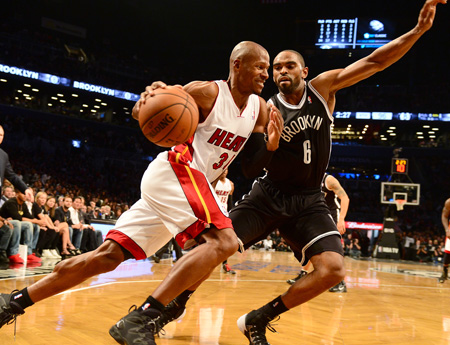TV Calls an Audible

The smarter way to stay on top of broadcasting and cable industry. Sign up below
You are now subscribed
Your newsletter sign-up was successful
They say the only constant in life is change, and anyone looking to prove the axiom need go no further than the TV sports business in 2014. Remember all of those rights deals that were signed in recent years, especially by the National Football League and Major League Baseball? This is the year they kick in.
Field Tested
For starters, young upstart network Fox Sports 1 will get a new toy to play with, as it will air weekly MLB games on Saturdays. More changes are coming around playoff time in October, as Fox takes some of TBS’ postseason games and ESPN returns to postseason baseball for the first time since 2006.
Baseball’s new eight-year deals with Fox, ESPN and Turner will bring in $12.4 billion, a 100% increase. The new agreement also benches Saturday blackouts of out-of-market games for MLB Extra Innings and MLB.TV subscribers. Also, expect to hear an announcement on a new commissioner, with the favorite right now being COO Rob Manfred, who has been Bud Selig’s second-in-command for years. Selig will retire before the 2015 season.
The biggest change with the NFL’s new deals will be an expansion of flex scheduling, the league’s initiative to move around games at the end of the season so that ones with playoff implications are broadcast to a bigger audience. Up until now, that just meant taking a Sunday afternoon game from Fox or CBS and giving it to NBC for Sunday Night Football. Beginning this year, flex scheduling starts earlier in the season and will allow for games to move between Fox and CBS.
The NBA’s New Leading Man
A day before Punxsutawney Phil tries to see his shadow, Adam Silver will replace David Stern as NBA commissioner, marking the first change in leadership for the league in 30 years. One of Silver’s first jobs as commissioner will be to negotiate the league’s new media rights deals, which are up following the 2015- 16 season. With three media companies—ESPN/ABC, Fox and Turner—possibly bidding for only two packages, the NBA could be looking at a lofty payout.
The smarter way to stay on top of broadcasting and cable industry. Sign up below
“The NBA is the last major piece of sports content that ESPN has to acquire for the long-term future,” Jay Rasulo, senior VP and CFO of parent Walt Disney Co., said at last month’s UBS conference. “There has been some talk of splitting [those rights] up.”
Some of that talk is due to Fox’s very open desire to acquire NBA games for its Fox Sports 1 channel, which would give the fledgling network a major programming pillar for the winter months. Currently, FS1 only has college basketball among its big-ticket live scheduled events. If Fox can’t outbid either ESPN or the league’s other incumbent, Turner (which also partners with the NBA on its NBA TV channel), there is some thought the league could create a third national rights package.
The NBA is not the only major rights acquisition target for 2014. The Big Ten conference—whose current deals with ESPN/ABC also end in 2016—could cash in as well.
The World Will Be Watching
In the sports world, an even-numbered year means that regardless of what other events may come, television is bound to get a lift from at least one major world sporting event—the Olympic Games. In 2014, sports-watchers get a double dose with next month’s Winter Olympics from Sochi, Russia, and this summer’s World Cup soccer tournament in Brazil.
The 2014 Winter Olympics will be the first under NBC’s new deal signed back in 2011, which saw Comcast shell out $775 million alone for Sochi. Despite the increase in price, NBC Sports Group chairman Mark Lazarus is confident Sochi will still be profitable.
NBC turned an $88 million profit on the 2012 London Summer Games, but the network lost about $223 million on its last Winter Games with 2010’s Vancouver edition.
In 2012, NBC made every Oympics event available live on one platform or another, with most of it coming via the second screen. With Sochi nine hours ahead of the U.S. East Coast, NBC will employ the same strategy, with more than 1,000 hours of livestreamed content.
NBC also hopes the Olympics will put NBCSN on the medal stand, as the third-year cable net will present some 230 hours from Sochi (the most ever for a U.S. cable network), including coverage of the most popular events, figure skating and hockey.
In June, ESPN airs what will be its final World Cup, as the quadrennial event (and the women’s version) will shift to Fox.
This year’s Super Bowl will also attract extra attention with it being the first to be held outside in potentially snowy weather in New Jersey. Fox is surely banking on it.
